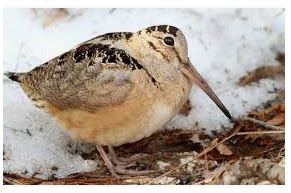By John M. Simpson
Earlier this week, a federal district court in Washington, D.C., dismissed an action brought by animal rights organizations challenging the failure of the U.S. Department of Agriculture (USDA) to issue animal welfare regulations specific to birds under the Animal Welfare Act (AWA). American Anti-Vivisection Soc’y, et al. v. U.S. Dep’t of Agriculture, et al., No. 1:18-cv-01138 (TNM) (D.D.C. Dec. 10, 2018). While finding that the plaintiffs had pleaded sufficient facts to establish Article III standing to sue, the court rejected their substantive claims under the Administrative Procedure Act (APA): (i) that USDA’s failure to promulgate regulations applicable to birds was “agency action unlawfully withheld;” and (ii) that USDA’s decision not to issue the standards was arbitrary and capricious, an abuse of discretion and contrary to law.
USDA had determined more than fourteen years ago that birds were covered by the AWA (and therefore subject to the Act’s general welfare standards) and also had initiated a rulemaking proceeding to establish specific standards for birds. But the agency had not issued those standards and, indeed, had missed several deadlines for publication of the rules. Despite this undisputed delay, the court found that the agency action at issue was not unlawfully withheld:
[T]he Court can only compel “legally required” agency action. … Here the AWA does not mandate the promulgation of rules specifically applicable to birds. Its language “would support a judicial decree under the APA requiring the prompt issuance of animal welfare regulations, but not a judicial decree setting forth the content of those regulations.” … And, as the Department has issued general animal welfare regulations, the Court cannot “say that the USDA has failed to take action it was ‘required to take.'”
Slip op. at 13 (citations omitted). The plaintiffs’ arbitrary and capricious/unlawful agency action claim “fare[d] no better.” Id. at 14. APA review requires final agency action, and the USDA’s failure to issue the regulations did not fall into that category:
Frustrating though the Department’s delay may be, it is not a final agency action. As the Plaintiffs concede, the Department has “continually reaffirmed its commitment, in both the Federal Register and public meetings year after year” to issue bird-specific regulations. Pls.’ Mem. at 34. Indeed, that the agency “has set and missed its own deadlines more than eleven times over the course of sixteen years” suggests an ongoing, if incredibly slow, process. Id. Allegations the issue may have “completely fallen off the regulatory agenda,” or that the agency “still has done nothing to protect” avian species despite its frequent statements of intent do not support a § 706(2) action either. While the Department appears to have stopped setting these deadlines, see id., it has neither taken any action nor issued anything suggesting that it will not promulgate bird-specific regulations. Some things take more time. Just ask a timberdoodle.
Id. at 14. As the court noted, a timberdoodle “is the world’s slowest flying bird.” Id. at 1.
 Timberdoodle
Timberdoodle
The outcome in this case was controlled largely by a prior D.C. Circuit decision in which a similar challenge to the same agency inaction was brought by People for the Ethical Treatment of Animals (PETA). See PETA v. U.S. Dep’t of Agriculture, 7 F. Supp. 3d 1 (D.D.C. 2013), aff’d, 797 F.3d 1087 (D.C. Cir. 2015).
